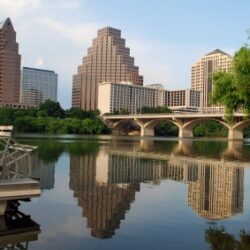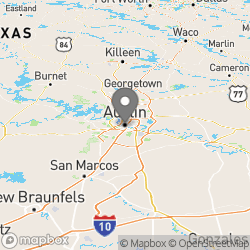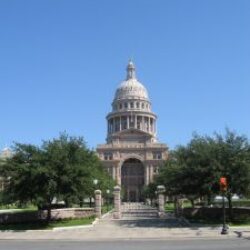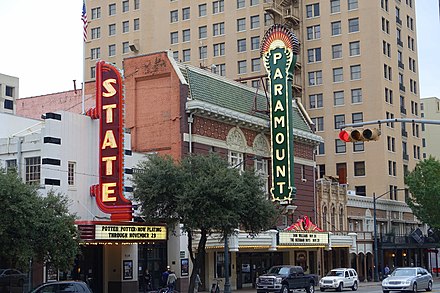Austin, Texas


What It Is Like to Retire in Austin
Austin, Texas is becoming a very popular retirement community for a variety or reasons. For one, it was selected by Money Magazine as the #2 best big city to live in. The University of Texas and its array of cultural and other activities is perhaps the biggest draw for Austin, its cosmopolitan and high-tech, quirky soul is another reason. UT is just one of 9 colleges and professional schools in the area. The area is a hotbed of semiconductor and software industries. Austin, with a population of a 961,855 (2020 census), is large, but not so big that it is overwhelming. The city bills itself as quirky and fun. Retirees will not only find plenty to do in the live music capital of the world which has an extremely robust cultural scene. Local attractions are many, ranging from the state capitol to the LBJ Library and Museum. There are many public golf courses, including the oldest in the state – the Hancock Golf Course. Austin is located in Travis County in south central Texas’s Hill Country. For profiles on over 750 cities and towns go to reviews of the best retirement communities. For more information about how to retire in Texas.Photo of State and Paramount theatre courtesy of Daderot and Wikipedia in the public domain.

Where to Retire in Austin and Home Prices
People moving to Austin will find every kind of housing choice – from active adult communities to all types of housing in the city’s neighborhoods (see link to Active Adult Communities at top left). From apartments to condos to houses, the area offers very good value and is a reason why Austin is one of the fastest growing metros in the U.S. Neighborhoods in the west going into the Hill Country are very desirable, as are many of those near the campus. The National Association of Realtors reports the median home price to be $485,700 in Austin-Round Rock area during the 3rd quarter of 2023, which is about 10% lower than a year earlier.
What Is Special about Austin
• Big city and college town combined – University of Texas • 23rd Street open air Artists Market • Cultural Art Center • The Arthouse – fosters contemporary art • Austin Museum of Art and Museum of Art Laguna Gloria • 45% of the city's residents have a college degree or better • A top city for pets and for biking
What Is Not Special about Austin
Summers are hot and humid, and the city itself might be too big and fast-paced for those seeking quiet

Who Will Like Retirement in Austin
People live here who like being in a vibrant city with an active cultural scene. Austin could be the most liberal and cosmopolitan city in Texas. For reviews of San Antonio or The Woodlands
Local Economy Is Driven by
Software, high tech, education, tourism, real estate
Climate and Physical Environment
Austin is in south central Texas in an area that separates the Texas Hill Country from the prairies to the east. The Colorado River flows across the Balcones Escarpment here; in fact the River goes right through the center of the town. The average July high temperature is 95 and the average January low is 40 . May is the wettest month (5").
Restaurants & Cultural Scene
Austin is a cultural feast. The University of Texas is a cultural engine, but the local art world is very active with many museums, galleries, open air art markets. It bills itself as the Live Music capital of the world. There are 3 downtown performing arts theatres including the Paramount Theatre and Zachary Scott Theatre Center. Residents enjoy the Blanton Museum of Art, the Bob Bullock Texas State History Museum, the Austin Museum of Art (AMOA), and galleries at the Harry Ransom Center. Ballet, opera, and a good library system add more. Osher Lifelong Learning Institute from UT.
Crime
As is typical in a larger city, the crime rate is above average.
Medical facilities
As is befitting a university town, health care here is topnotch. There are 12 major hospitals in the area.
Transportation
Austin-Bergstrom International Airport. Amtrak offers service to points east and west. Austin is rated as one of the 10 best bicycling cities in the U.S. Capitol Metro, which offers free fares to seniors 65 and over. City transportation service allows seniors to book rides to appointments at a low fare.


Comments on "Austin"